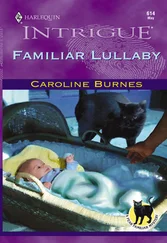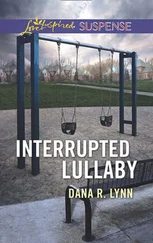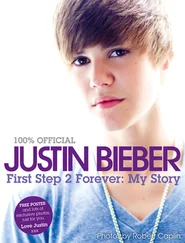“You think this was intentional?” Cooper asked.
“The way things were presented,” Peg said, “well, it was very damning. A staff member violating his contract and risking the hospital’s reputation. It didn’t look good.”
“I would love to argue appearances,” said Kopp, “because it appears to me that my client, a model employee, has had his career threatened over a phone call.”
Peg turned to Peter. “This wasn’t personal. Put yourself in my shoes. . Tony Ogata calls me with a concern about a staff member.”
“We’ll need to discuss this internally,” added Cooper.
“Does this mean that I’m not losing my job?” Peter asked.
Kopp patted Peter on the shoulder, “I’d like to speak with my client, if you two wouldn’t mind.”
Peg looked at her watch.
“Would you excuse yourselves for a moment?”
Cooper stood up. Then, turning to Kopp, he dropped his voice. “So, do you know Dr. Vinoray?”
Peter’s attorney pulled a pen from his jacket pocket. “I don’t think so, but I’m better with faces than names.”
Cooper set his business card in front of Kopp. “I don’t understand how you wound up here, but it’s an honor to meet you.”
“I always urge my students to focus on the questions they can answer.”
AFTER THE DOOR closed and they were alone, Kopp got up and refilled his coffee mug. “That went fairly well.”
Peter had a sip of water. “They wanted to fire me.”
“No, the purpose of the meeting was to embarrass you enough that you’d see the wisdom in resigning. Well, we’ve managed to reapportion the embarrassment.”
“How does it help me to embarrass the president of the board and the hospital’s director? I’ve never worked anywhere else.”
Kopp tore a sheet of paper from Cooper’s notepad and began to scribble something:
This morning. . You’re fired.
This morning. .?
There was an old timeline, Kopp explained, and a new timeline.
“If they’d been a bit more circumspect, maybe they could have built a case against you. Despite what I told them, I don’t have any affidavits exonerating you.” With one finger, Kopp drew an imaginary line connecting Peter’s nose to the piece of paper on the table. “This morning they called a meeting. The next time we call the meeting. This is a step in the right direction.”
“Call a meeting for what?” Peter had lost the script.
“We’ll need to give them a chance to save face.”
“Okay.”
“Did Mr. Cross offer you a job last night?”
Peter tried to remember what had been said. “He offered me a plane ride.”
“What reason did you give for refusing that ride?”
Something large was staring Peter in the face. He could feel its hot breath.
“I have a job.”
Kopp tapped a finger on his diagram. “And which timeline do you think that statement belongs on?”
“But I still have a job, don’t I?” He admired but didn’t understand the mechanism by which he’d been transformed into a pawn.
“Does it help if I assure you that I have your best interests in mind?”
“But you don’t know me.”
Kopp offered his hand. “The people you know are waiting in the hall.”
There was nothing more to be said.
•••
WHEN THEY EXITED the conference room, Peg grabbed Peter by his shoulders. “I’m giving you my word, we’ll make this up to you.”
“I don’t blame you,” Peter said.
“Tony Flipping Ogata,” Peg said.
Kopp pulled Peter into the elevator. “My office will be in touch.”
As the doors closed, Peter felt a stone expanding in his throat.
He swallowed.
In the lobby, sunlight reflected off the polished floor, threw shadows on the ceiling.
“Can I give you a lift to the airport?”
“Go back to work. As far as you are concerned, this is a normal day.” Kopp ruffled his mustache with a fingertip. “Give me twenty-four hours and I promise we’ll sort this out.”
The men shook hands for the third time.
Peter followed the attorney through the revolving door and into that cool, damp air. “What do I do if someone wants to talk with me?”
“What do you think you should do?”
“Tell them to talk with you.”
“Perfect.” The attorney tilted his head toward a black town car idling at the curb. “That’s me.”
I’m sitting on the porch when Gene pulls in.
He aims a finger pistol at me. Bang!
“Gene Machine!” I say. He’s put on weight. It’s the first thing I notice. He must have packed on fifty pounds. He’s fat!
He grabs the rail and climbs a few stairs, but then he stops. “Get down here,” he says, “you skinny fuck.”
We hug and he pounds me on the back. His soft body is warm and moist. It’s kind of shocking.
I tell him I like the new apartment.
“We haven’t seen each other in a while,” he says. “I don’t want you to think I’m depressed. Corinne got fat, too. Last winter we went on this cruise. It was ten days and they treat you like veal calves. They don’t let you do anything for yourselves and they stuff you with food. But, frankly, we’re a lot happier. We’re middle-aged and it was getting to be such a battle to count calories and work out. Anyway it’s a big change — har har — and I don’t want you to feel like you have to ignore it. If anything, you might have to tell me to stop talking about it, because I’m sort of evangelical.”
I tell him I think it’s great — what else can I say?
“And don’t think I eat out of a trough now. I don’t stuff myself, just a lot of smaller meals and snacks. Here’s my deal — if I’m hungry for something or, you know, curious, I don’t worry about it. You and I haven’t talked about our parents much, but mine did a job on me. I internalized a lot of that Calvinist shit our generation was weaned on: clean your plate, babies are starving in Africa, no peas, no dessert. Cory and I had enough of it.”
“Well, there you have it,” I say.
He wraps me in his arms again and almost lifts me off the ground. He tells me how happy he is to see me. “Let’s go inside,” he says. “I want to sit down.”
When I turn to climb the stairs, Gene says, “I invited you into my home. Where are you going? You’re like a stray that doesn’t think it belongs inside.”
Maybe there’s some truth to what he said. I can feel a bit trapped inside a house.
Gene takes a casserole out of the fridge and slides it in the oven, then he pours a bag of chips into a bowl. It feels like school just got out and I rode the bus to a friend’s.
Gene hands me a bottle of wine and asks me what I think. For a moment I’m afraid that he’s mistaken me for one of those people who can’t let a penny pass between their fingers without pronouncing it good or bad. I confess that I don’t know much about wine.
He spins the bottle in my hand and taps a finger on the label: Bottled in Chaseburg, Wisconsin.
Chaseburg’s most famous export is a five-foot-eight musical genius.
“I’ve never seen this before.”
“Don’t get too excited,” Gene says. “It’s terrible. I saw it online and bought two bottles. Cory and I drank a little from the first bottle before tossing it, but I saved this. I wanted to drink it with you.”
“You think it’ll give us special powers?”
Gene takes the bottle from me, cuts the foil, and uncorks it. He splashes a little into two glasses. “Is a wrinkled nose a special power?”
I make a toast to thoughtful gestures. We drink. We laugh some. The wine is terrible. We ought to pour it out, but we drink some more.
Gene explains that the Greeks believed wine helped artists get in touch with the muse.
Читать дальше












